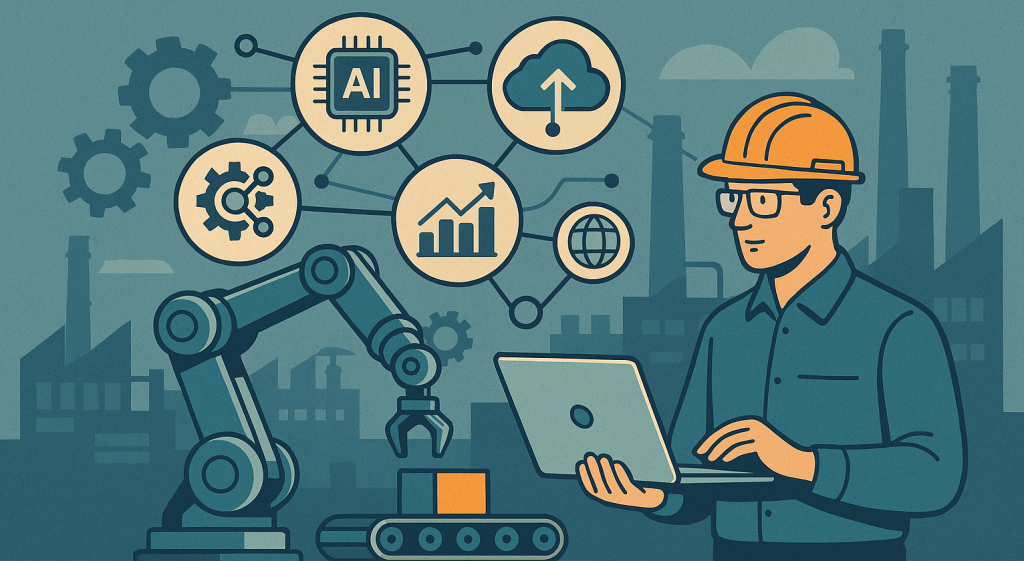What is Automation in Industrial Engineering?

Automation is the use of technology, control systems, and information technology to operate equipment and processes with minimal or no human intervention. It encompasses a wide range of applications, from simple mechanical systems to complex artificial intelligence (AI)-driven robotics.
In industrial engineering, automation is revolutionizing the way businesses optimize production, reduce costs, and enhance efficiency. This transformation is reshaping manufacturing, logistics, and supply chain management, leading to increased productivity, accuracy, and adaptability in a competitive global market. Automation can be categorized into several types based on complexity and application:
Fixed Automation – Also known as hard automation, this involves systems that perform repetitive tasks with minimal flexibility. Examples include assembly lines and conveyor belts in automobile manufacturing.
Programmable Automation – Designed for batch production, these systems can be reprogrammed to accommodate different products. Examples include CNC (Computer Numerical Control) machines and robotic arms.
Flexible Automation – These systems can adapt to changes in production requirements with little reconfiguration. Examples include robotic welding and smart factories using IoT (Internet of Things) technology.
Cognitive Automation – Utilizing AI and machine learning, cognitive automation enables intelligent decision-making and predictive analytics. Examples include AI-driven quality control and predictive maintenance.
